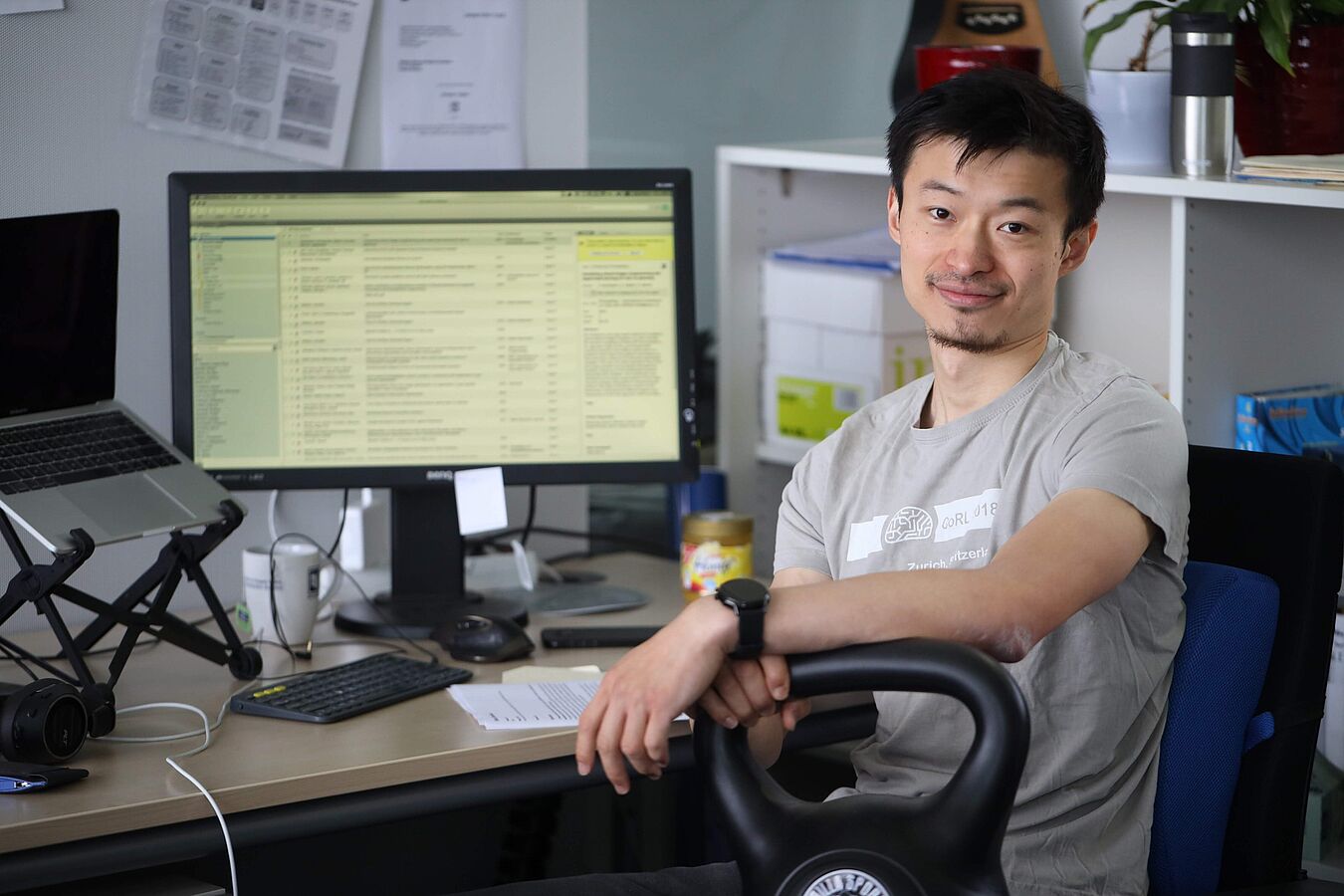Throughout his career, Chinese mathematician Jia-Jie Zhu has crossed oceans. He not only grew up in Shanghai, but also attended prestigious Fudan University there. After his Bachelor’s degree, he went on to study for his PhD in the US. He had not pursued any particular specialisation up to that point, but had acquired a broad understanding of mathematical principles. For his PhD, however, he found a topic that had always fascinated him, and which he continues to pursue to this day: optimization problems of all kinds.
A growing interest in machine learning
This topic inspired him to take the first big leap across an ocean, to the University of Florida, where he researched problems in numerical analysis and general optimization in the group of Professor William Hager. During his five years in Florida, he developed a growing interest in machine learning, or more precisely the algorithmic approach to optimization problems. After earning his PhD, Zhu then moved from the University of Florida to Boston College, where he worked as a postdoc for around a year and a half.
By this time, he had already established contacts in Germany, and he eventually applied for a Marie Skłodowska-Curie Individual Fellowship from the European Commission. His application was approved, allowing him to fund his research for two years – and Zhu made his second big leap across an ocean, this time the Atlantic rather than the Pacific.
Once in Germany, he spent the next four years at the Max Planck Institute for Intelligent Systems in Tübingen. During this time, he also worked in the Empirical Inference department under the direction of Professor Bernhard Schölkopf. One of the main research areas of this group is machine learning – and so-called kernel methods in particular. These are algorithms that use special mathematical mappings to translate data structures into a more easily manageable form. Such methods are used to draw meaningful inferences about material systems, for example, from a limited number of measured values.
While working there, Zhu dealt among other things with questions such as the robust optimal control of processes, where his field of work was abstract mathematics and not its application to concrete problems. The methods developed in this research field, however, are highly general in nature and can theoretically be applied in many different fields.
Problems in optimization – an algorithm is not necessarily “smart”
During his term in Tübingen, Zhu also took half a year to work in the lab of Professor Moritz Diehl at the University of Freiburg, researching so-called robust optimization and control. This is a central problem when it comes to optimization. While many things can be optimised for better control and monitoring thanks to algorithms and machine learning, if the parameters drift further than expected – as can happen in a real world application – the optimization solution still has to perform correctly and not suddenly put everything out of whack. The trouble is, an algorithm may not necessarily be “smart” enough to go beyond what it was developed or trained to do. The research field of robust optimization has set out to solve precisely these problems. Yet, they are mathematically very challenging and difficult to work on. This is all the more so because mathematical modeling is being used in many branches of science and industry, where it is increasingly serving as a decision-making basis.
Now group leader at WIAS
With these professional qualifications, Zhu moved to Berlin around a year ago, where he accepted a position at the Weierstrass Institute for Applied Analysis and Stochastics (WIAS). He was motivated not only by the city’s quality of life, but above all by the expertise at WIAS in the fields of variational analysis and computer-assisted analysis.
As the head of the Weierstrass Group Data-driven Optimization and Control, he continues to work in his former research areas in addition to tackling new mathematical questions. One is applying optimal transportation machine learning and optimization, which involves manipulating probability distributions instead of deterministic objects. Another area of research is robustly handling data structures under uncertain conditions. An example of such uncertain settings could be estimating how well what we learned from a past pandemic can be extrapo-
lated to the next one. It is precisely this diversity of optimization possibilities that makes mathematical work so appealing to Zhu. For now, at any rate, he feels very much at home in Berlin, which is why the optimization of his career path does not include envisaging a move across the next ocean anytime soon.


